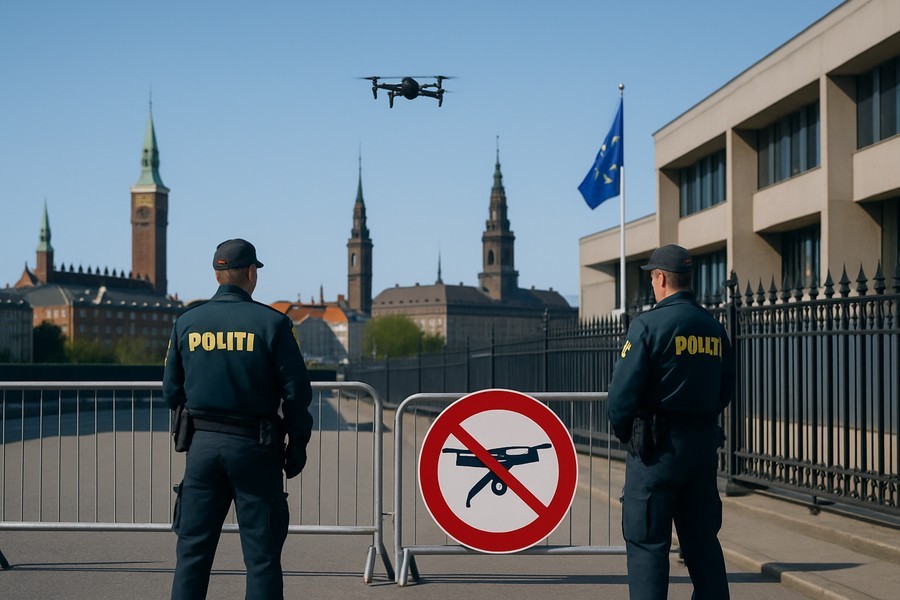
Denmark Suspends Civilian Drone Operations Ahead of Key EU Meeting Amid Rising Drone Activity
In light of mysterious drone occurrences, Denmark has initiated a temporary halt on all civilian drone operations within its territory. This precautionary move comes as the nation prepares to play host to an essential meeting of European Union leaders, focusing on defense strategies and the ongoing conflict in Ukraine.
Precautionary Measures Motivated by Safety Concerns
The temporary prohibition, scheduled to last for five days, has been put in place to mitigate any potential hazards. The goal is to prevent any confusion between "hostile" drones and legal ones, according to the country's transportation chief.
Over the past week, there were several unaccounted-for drone sightings over civilian airports and a military facility in Denmark. These incidents compelled several airports to temporarily suspend operations, causing travel inconveniences for numerous individuals.
High-Level EU Meeting on the Horizon
High-ranking European officials are set to convene in Copenhagen midweek for a European Council meeting that will focus on defense and the situation in Ukraine. A European Political Community meeting is slated to take place in the city the following day.
The Danish defense head expressed that the country is currently facing a challenging security situation. Ensuring optimal working conditions for the military and police charged with providing security during the EU meeting is essential.
Increasing Drone Alertness Across Europe
Recent weeks have seen Europe heighten its alertness due to a wave of drone sightings. There have also been instances of Russian drones violating NATO airspace over Poland and Romania, and Russian fighter jets breaching Estonian airspace.
While the Danish Prime Minister stated that it is not conclusively known who is behind the drone sightings, she pointed out that "there is primarily one country that poses a threat to Europe’s security – and that is Russia." The Russian government has denied involvement in the drone sightings and the Estonian airspace violation.
NATO's Response to the Drone Activity
In reaction to the unexplained drone incidents in Denmark, NATO announced its plans to enhance defense measures in the Baltic Sea region. A German air defense frigate associated with NATO's "Baltic Sentry" mission arrived in Copenhagen to bolster airspace surveillance during the impending EU summit.
The "Baltic Sentry" mission, which was initiated earlier this year in response to a series of incidents that caused damage to power cables, telecom links, and gas pipelines on the Baltic Sea bed, will be complemented by the newly launched "Eastern Sentry" mission. The latter mission is aimed at strengthening defenses on Europe's eastern flank following Russian drone intrusions into Polish airspace.
Further, Germany has pledged to offer "Counter-small Unmanned Aircraft Systems" to Denmark with the goal of detecting drones using a combination of radar, optical, and acoustic technology.
Additional Support from France and Sweden
France's armed forces have declared the deployment of a temporary joint task force to Denmark in response to the drone incidents in the country's airspace. This task force, which includes 35 personnel, a Fennec helicopter, and anti-drone facilities, is designed to bolster the Danish and European assets already in place, demonstrating European unity in defense against a substantial threat.
Sweden has also committed to lending Denmark an anti-drone system, although specifics of this offering have not been disclosed.
